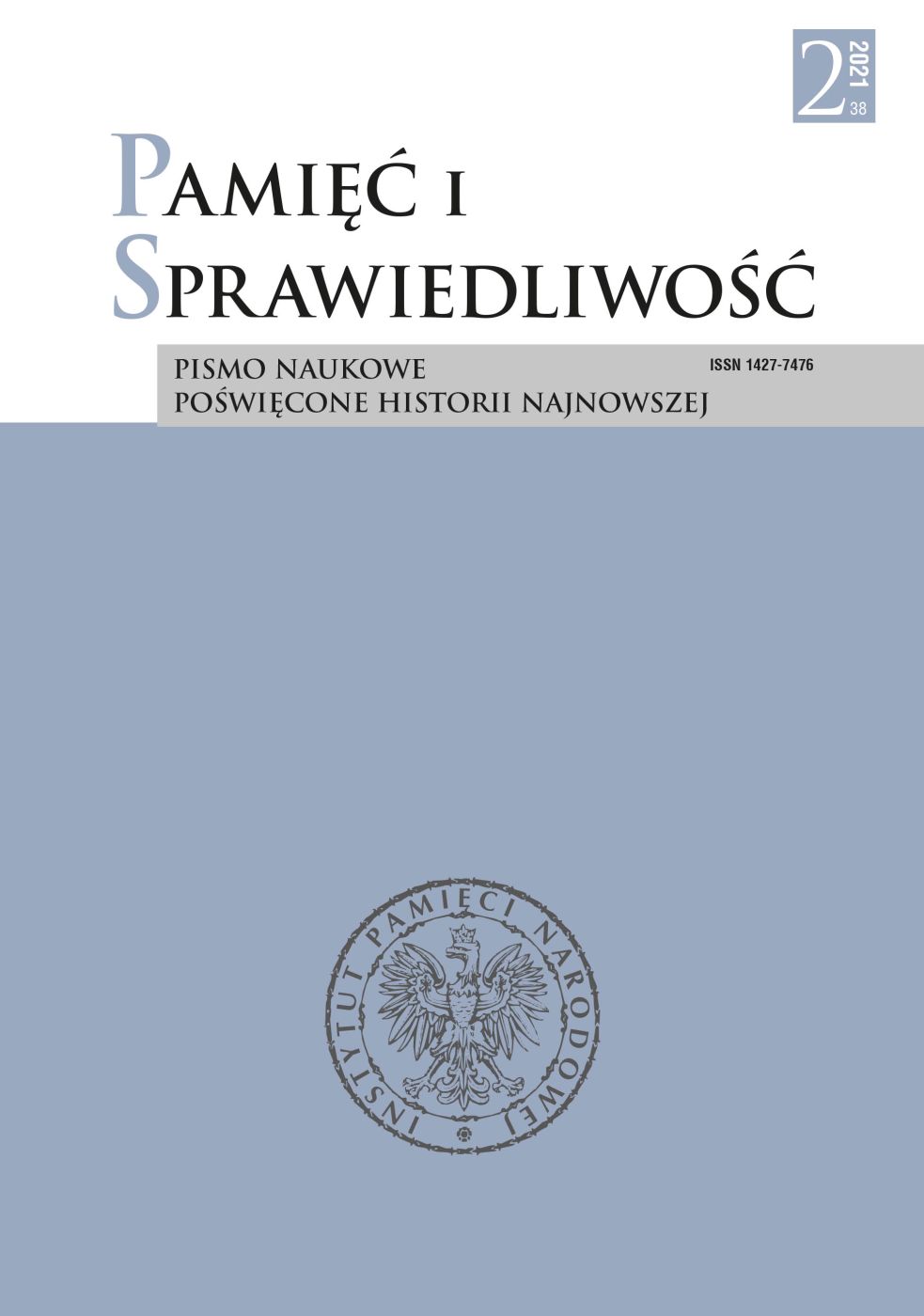Wojskowa i polityczna walka o Lwów i Galicję Wschodnią w latach 1918–1923: nowe badania historyków ukraińskich
The Military and Political Struggle for Lviv and Eastern Galicia in 1918–1923: New Research by Ukrainian Historians
Author(s): Mykoła Łytwyn, Lubomyr ChachułaSubject(s): Military history, Political history, Military policy, Interwar Period (1920 - 1939), Transformation Period (1990 - 2010), Geopolitics, Peace and Conflict Studies
Published by: Instytut Pamięci Narodowej
Keywords: West Ukrainian People's Republic; Eastern Galicia; Lviv; Entente; Polish-Ukrainian war; geopolitics;
Summary/Abstract: Researchers of the Center for the Study of Ukrainian-Polish Relations at the Ivan Krypjakewych Institute of Ukrainian Studies of the National Academy of Sciences of Ukraine (Lviv) analyse the contemporary scientific output of Ukrainian historians (collective and individual monographs, thematic encyclopaedias, cartographic publications), concerning the geopolitical contexts of the Polish-Ukrainian War of 1918-1919, and the statehood of the West Ukrainian People's Republic. Ukrainian historians consider the following reasons for the defeat of the Ukrainian revolution, primarily the West Ukrainian People’s Republic (ZURL) in the Polish-Ukrainian War of 1918–1919: the lack of unity among the political elite, the unfinished process of nation-building, the discrepancies between the national and social goals of the all-Ukrainian liberation movement, while they consider the influence of external and military factors as the key ones. The unilateral orientation of Ukrainian politicians in Eastern Galicia towards Austria-Hungary and Germany during World War I led to a lack of constructive contacts with the post-war Entente and US governments. In view of the new military and political situation in Central and Eastern Europe, mainly due to the threat of the expansion of Bolshevik Russia and the spread of communist regimes, Western states were inclined to settle the Polish-Ukrainian armed conflict over Galicia in favour of an internally compact Poland. On 14 March 1923 the Council of Representatives of the Entente states recognised Eastern Galicia as part of the Polish state, the government promised to guarantee national minorities the possibility of developing national and cultural life, and to grant autonomy to Eastern Galicia (which it failed to do). The cult of heroes and national/state/local mythology is an important source for the construction of historical narratives. Nowadays in the world, and partly also in Ukraine, the historical sciences accept the fact that historical perceptions function in social consciousness. For researchers of the period of restoration of modern Polish and Ukrainian statehood, national historical legends (about the Eaglets of Lviv and Przemyśl, about the November uprising of the Ukrainians) are not a manifestation of distorted historical knowledge, but a story about the past in different context. However, a critical approach, based on a reliable analysis of sources and a professional scientific debate, should prevail in the professional description of history.
Journal: Pamięć i Sprawiedliwość.
- Issue Year: 38/2021
- Issue No: 2
- Page Range: 189-206
- Page Count: 18
- Language: Polish

